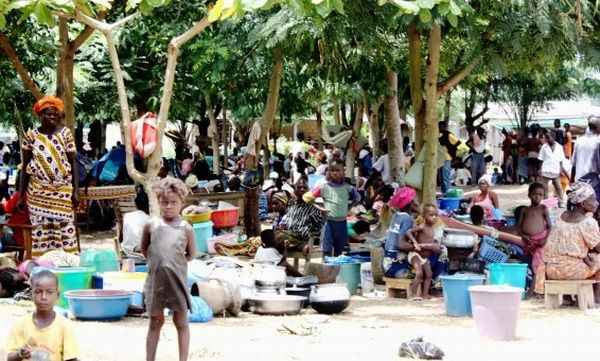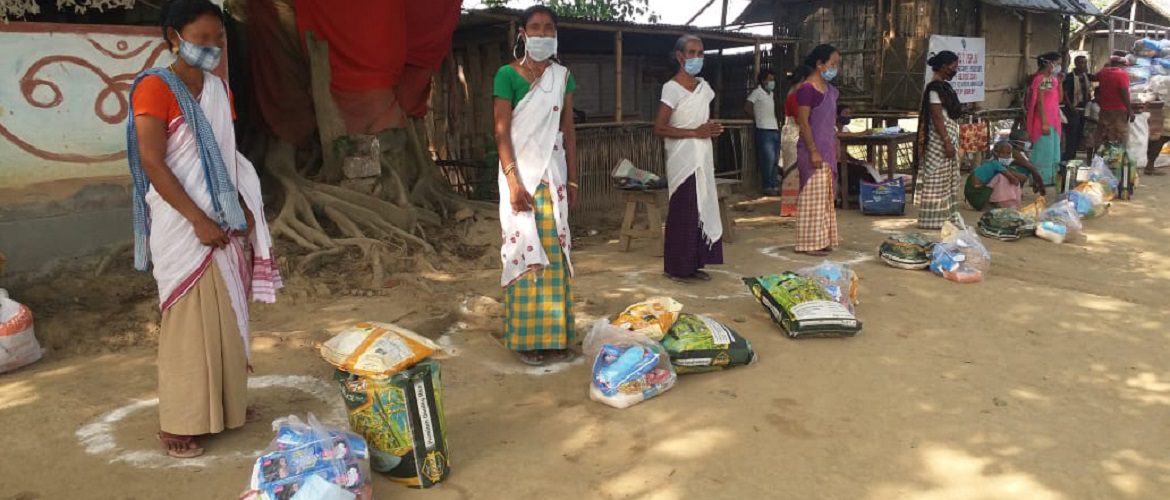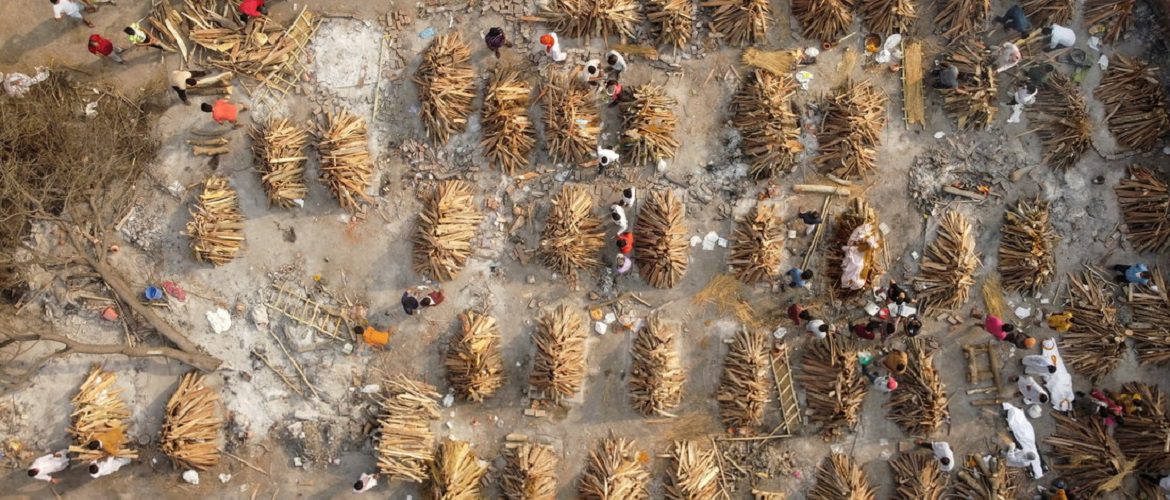By Charles Bambara, Regional Media Officer, Oxfam Great Britain
I’m part of an Oxfam team travelling to western Ivory Coast to plan how best to respond to the escalating humanitarian needs in the country.
Starting in Burkina Faso, we drove for two days, arriving in northern Ivory Coast on Sunday. We visited Korogho, the main city of the Savannah Region, in the North, a quiet and peaceful place. However, one can easily sense that the situation is not so rosy. Here too, like elsewhere in the country, banks are closed, construction buildings are abandoned. Many displaced people coming from the economic capital Abidjan have recently arrived in town, waiting to see what will happen following the political standoff between Ouattara and Gbagbo. Many are living with local families, with friends or with extended family members.
After a long 10-hour drive from Korogho, the team arrived in Man, in the Mountainous region of Cote d’Ivoire in the West of the country. We crossed cities — Boundialy, Odienné, Biankouma, and Touba — all surprisingly calm and quiet without any heavy military presence.
An hour after arriving we meet with different representatives of other agencies or UN colleagues already working in the region. Man has become over several weeks a sort of “humanitarian hub” for organisations responding to people who have suffered violence and intimidation.
“The region has experienced four successive refugees flow,” we hear.
The post-electoral violence was a traumatic experience for people in Cote d’Ivoire and many have chosen to move or relocate to other peaceful regions far from fighting in Abidjan. The city préfet – a sort of Mayor – is looking for new sites to host the latest arrival of displaced Ivorians. This fourth spike in refugees started at the end of March and was still continuing until recently.
On Tuesday 12 April, the Oxfam team went to Duékoué and Guiglo to visit people who are sheltering in community centres. The situation is very fragile in these cities, located inside the coffee and cocoa belt of Ivory Coast. Many killings, intimidation, violence and sexual assaults have happened in this area.
Guiglo
The main centre here is the Catholic parish of Our Lady of Nazareth, with close to 4,500 people sheltering in the church.
Father Augustine is in charge. “There are six other centres in different Christian churches in this area where people have gathered. Altogether we are hosting almost 7,000 people in these centres. We have nothing left to share with them after distributing all our food stock,” he told us.
With the help of the local priests, the Nazareth centre seems well organised but very crowded. Additional sanitation facilities were being built to cope with the demand. Water is a serious issue. Many people are sleeping under the trees talking in small groups, waiting for a quick return to normality. The prospect of returning home is still far off as people wait to assess the security in their home areas.
“There is a lot of intimidation when we go outside this compound. So the safest place for us is here at the parish”, said Andre, a member of the organising committee at this centre.
The local pastor, Mr Oulay Barthelemy, arrived and quickly engaged in conversation:
“I am hosting 300 people in my church, but I recognised that the needs here are much more important. My wife also runs a centre for abandoned children.”
Pastor Oulay is hopeful that with the political developments in Abidjan, normality will return but “it will take time” he conceded. “I have started to work to change people’s mind and mentality; there should be no place for hatred between people living in the same community”.
Father Augustine summarised the needs of the people at the centre: they need food and security. Those are the top demands, but also water along with basic necessities, such as clothes and cooking pots.
Duékoué
Duékoué is the city where many mass graves were discovered. Massacres were carried out by all sides according to the UN and other international human rights groups.
We met with some of the 27,000 displaced people confined in the courtyard of the local Catholic Church. The majority of people here are children and women. The UN was organising blanket and soap distribution for families.
This centre was completely overcrowded. The main challenge seemed to be around managing the relief effort efficiently. Inside the centre there is a small market place run by women and an improvised barbershop where men can get their head shaved.
Duékoué was also calm, considering what has happened here over the past weeks.
Closer to the Liberia border
Next we went further into remote forest areas in a village called Gbapleu-Gningleu, 20 kilometres from the border of Liberia.
Days after the second round of the election, violence erupted here forcing people in the surrounding villages to flee to Liberia across the forest. A nine-year-old boy told me he walked for hours all the way to Liberia with his parents. Since December there has been no school but he hopes that after the Easter break, children will return to school.
I met Mr Sanogo Moussa, a “wise man” from this village and retired coffee plantation-owner.
“I was born here and am 64 years old. We are part of this community now, alongside our all our Ivorian brothers and sisters and we have a common goal for our families and our village to prosper. That’s all.”
Despite encouraging words from Mr Moussa, there are still many urgent needs here especially a shortage of latrines and the recurrent demand of my trip, food. It’s fairly simple: before the next harvest, people say they need seed to plant in order to have food in the coming months.
It’s clear the needs are huge and immediate. Oxfam will be expanding its operations into Ivory Coast in the coming week. We are already providing clean water and sanitation services to refugees in Liberia.
Read more
Learn more about the situation in Ivory Coast and what Oxfam is doing to help




